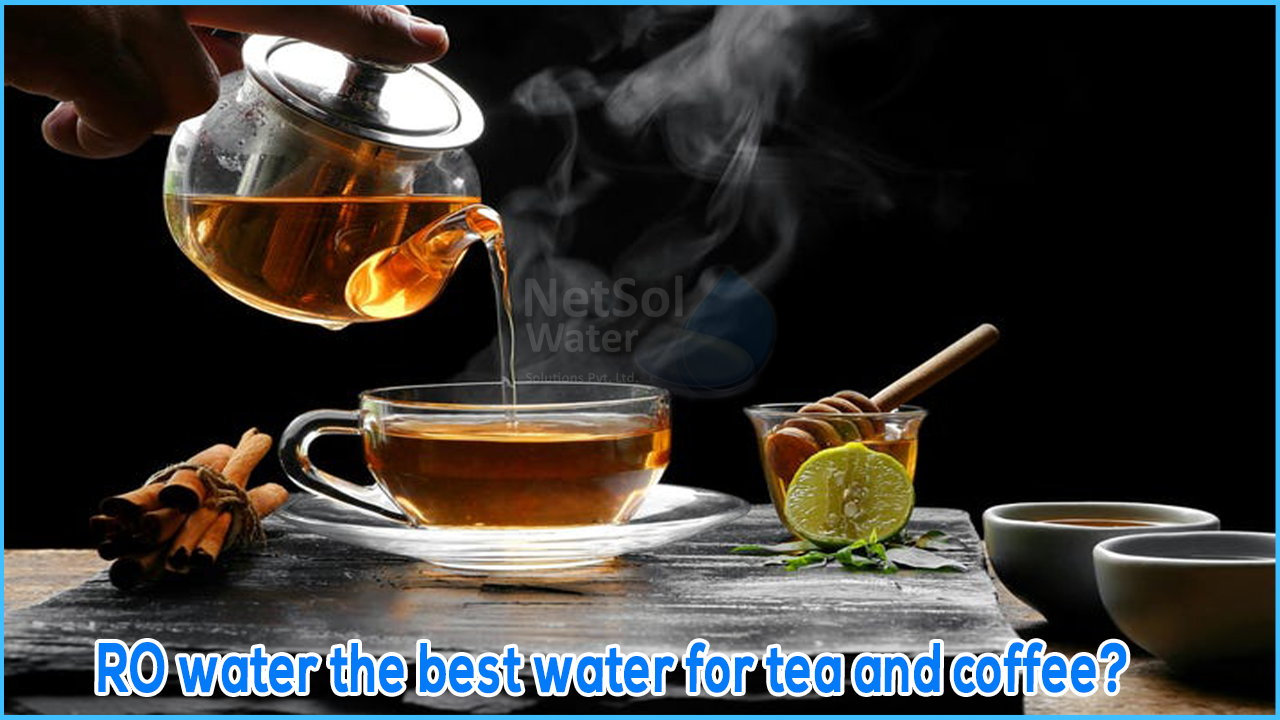A BRIEF INTRODUCTION
For all folks, it's not just the brand quality of your tea or coffee that matters, or whether it's high-quality coffee beans and tea leaves. The consistency of the liquid that mixes flavourand aroma is important, and when brewing beer, the type of water is also crucial. You need to focus on the purity of the water, hardness, temperature, and more. So, water is the main ingredient.
Today, many people are tea and coffee connoisseurs and often make their own version of the brew at home. All you need is the ideal first tea or coffee at the beginning of the day to start. However, could your running water destroy your carefully crafted creations? Would it also be wise to use filtered water to make sure you get the ideal infusion?
Tea and coffee are approximately 98% water, so it is a good idea that unwanted flavours and impurities that can be hidden in tap water will affect the final taste. So yes, it works.
If you made your regular brew and asked why it tasted unusual, it probably had something to do with the water. The water content can even change with the weather. If it's rained properly, the extended pressure factor can be used to push additional particles through the taps, showing why a few days of tea just can't.
The next time you finish in a typical coffee or tea house, you might see that they have a nice and sizeable water filtration system in place. This is there so they can handle whatever ends up in your mug. Making the ideal infusion may sound like one of the gloomy expressions, but it makes perfect sense. Assuming you know what's in your water, you should be able to tell what's changing the taste. A simple test is whether you like the taste of water straight from the tap. You know the same with your nose as with your tongue. If the water doesn't smell or taste good at first, your tea or coffee has no way of masking the taste.
Hard water can cause problems with your tea. If you see a shiny film sliding on top of your tea, it is not a sign that the water is hard. Hard water generally has a lot of calcium and magnesium, which may not be terrible for you, but it will make your tea taste a bit flat and surprisingly slightly powdery. If your water is loaded with these minerals, your tea leaves will not have enough room to penetrate the water.
Too hard of the water can also make the tea cloudy. This is not that important if you opt for a traditional cup of tea. When you're concentrating on a fine glass of sparkling iced tea, you don't need cloudy water to destroy the final product. A ton of teas have light and subtle flavours. If your unfiltered tap water contains impurities like chlorine, salt, or even dirt particles, it can lose the very flavours that make your selected tea stand out. If your water has a lot of these impurities, the tea may not taste as good as it should.
What's in the water that is ruining your coffee?
The same goes for coffee. If you use extremely hard water to mix your coffee, it will probably destroy the flavour. Unnecessary hard water can make your coffee taste unpleasant and hot, and while coffee lovers like to sip their espresso, there is a limit! This bitterness can often come from too much baking soda in the water.
Using hard water also causes limescale build-up in your kettle or coffee maker. Aside from the fact that it looks unsightly, it can damage the device and affect its functionality. A kettle without lime deposits sprouts in undeniably less time than a calcified kettle. So, if you use filtered water, you'll get a great price on your long-term electricity load.
Tap water
As more households have drinking water directly from the tap, it should be noted that drinking water simply means that its consumption will not have a negative impact on well-being or that the effects will be short-lived, negligible. While tap water is the most widely used water of choice, probably for convenience, potential problems always arise from the level of chlorine and whether the pipes supplying it to the home are contaminated. So, if you use tap water to make tea or coffee, leave the tap running for a minute before collecting the water you need. This is to get rid of chlorine and harmful chemicals that may initially have built up in your plumbing and faucet. A natural way to remove chlorine is to let a pitcher of tap water sit in the kitchen overnight before using it to brew beer in the morning. This gives the chlorine it contains time to disperse.
Filtered Water
Filtering certainly enjoys its benefits in helping you create the ideal infusion. Aside from hard water, there are several elements in water that can affect tea and coffee, such as fluoride, chlorine, heavy metals, and dirt particles. Most governments use low levels of chlorine to purify and purify drinking water supplies. All coffee and tea specialists agree that chlorine does not add to the flavour of your tea or coffee. Filtering the chlorine through the water will constantly improve the flavour of the infusion. Probably the easiest way to remove chlorine from drinking water is to use an activated carbon filter.
Your drinking water can also absorb heavy metals and soil particles when transported through pipes. Heavy metals like mercury and lead can add a metallic taste to your drinks.




